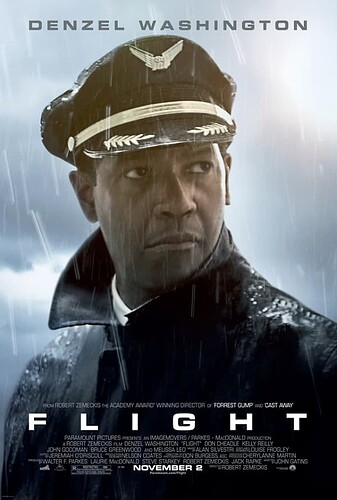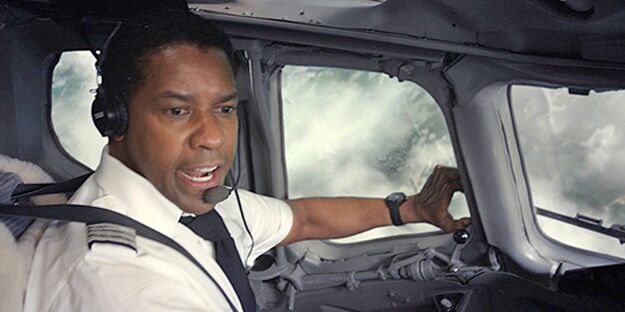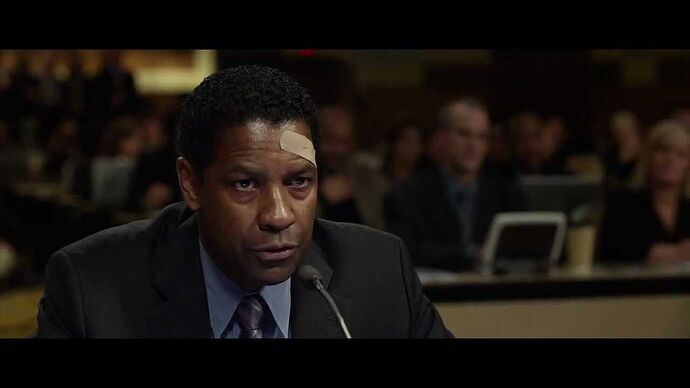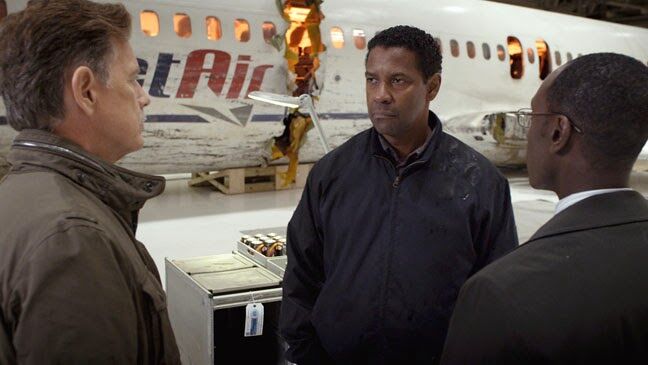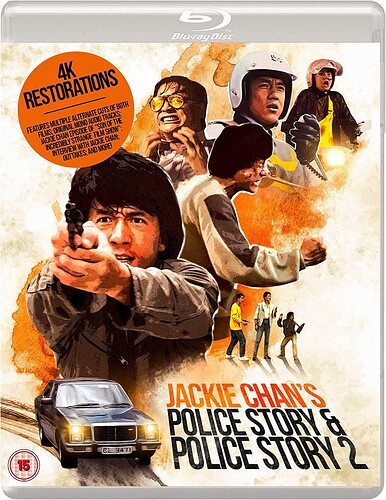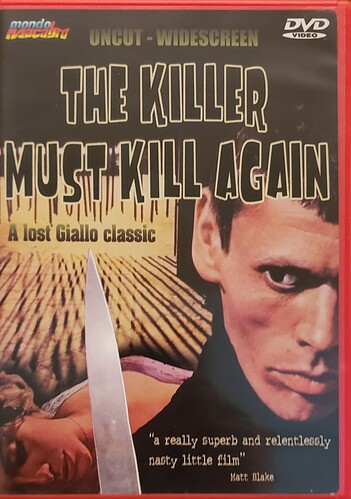La polizia ha le mani legate (1975) - Director: Luciano Ercoli - 8/10 - Ercoli’s poliziotteschi’s entry distinguishes itself by virtue of its eminent versatility; the emphasis here is not put so much on action as it is on the political climate of the era i.e. the corruption, the mayhem and the general lack of trust. Instead of lambasting the insurgent elements within the society, the movie sets out to portray the subversives as mere pawns in the game of politics and succeeds in introducing different shades of grey into the equation, nimbly applying nuance and ambiguity on the canvas. In addition to the sound characterization, the excellent performances given by Claudio Cassinelli as well as Arthur Kennedy further solidify the tout ensemble, but it is ultimately Ercoli’s balanced storytelling and focused directing that bring cohesion to the composition and make it a genuine pleasure to watch. The slow pacing might not appeal to everybody, but to my way of thinking, it necessitates a more realistic outlook on the subject matter and allows for less strained writing, bringing forth a more consistent, coherent depiction of the times.
Socrate (1971) - Director: Roberto Rossellini - 7/10.
12 Angry Men (1957) - Director: Sidney Lumet - 10/10 = 10/10 - A re-watch.
The Verdict (1982) - Director: Sidney Lumet - 10/10 = 10/10 - A re-watch.
Lancelot du Lac (1974) - Director: Robert Bresson - 8/10 = 8/10 - A re-watch.
The Deadly Affair (1967) - Director: Sidney Lumet - 7/10.
Rollercoaster (1977) - Director: James Goldstone - 6/10 - Technically, the film features adequately delineated characters and depicts an intriguing psychological conflict between the protagonist and the villain, however, the crisis phase of the story fails to introduce an exigent setback for the main hero to surmount which in turn results in lackluster character development towards the end; while the obstacle is acceptable in and of itself, it doesn’t really shed any additional light on the male lead or the antagonist. Following the events in the climax, the main hero stays pretty much the same as he was before which brings into question film’s raison d’être, barring the crowd-pleasing action that is. Other than that, the motion picture is a perfectly serviceable blockbuster pic with a lot of that 1970s sheen to it, solid sense of focus, steady pacing and good production values, that being said, the work seems to lack this extra push which could catapult it into the realm of other acclaimed blockbuster productions of this kind. In other words, while the well-rounded fundamentals ensure that the endeavor titillates on the basic level, it is arguable whether the flick actually makes a lasting impression in the end.
A Dandy in Aspic (1968) - Director: Anthony Mann - 7/10.
The Fall of the Roman Empire (1964) - Director: Anthony Mann - 8/10.
Duel (1971) - Director: Steven Spielberg - 6/10.
Earthquake (1974) - Director: Mark Robson - 5/10.
Skyjacked (1972) - Director: John Guillermin - 5/10.
When Time Ran Out… (1980) - Director: James Goldstone - 2/10 - I really wanted to cherish the movie for what it was without agonizing over insignificant details, but the film simply gets bogged down so many times and peddles such threadbare ideas that one cannot help but scoff at the whole enchilada altogether. The storyline turns out utterly flat and as if that were not enough, the special effects are simply not up to par which instantly makes you wonder where all that money went; you can tell by the way certain characters as well as motives are handled that the movie sets out to recycle the usual clichés associated with the 1970s disaster genre, yet the manner in which the flick sets about it feels wholly forced, disingenuous and inorganic, as none of the narrative strands are developed to a satisfactory degree and whatever else is left turns out to be consummate mediocrity. Not only is the story totally hackneyed and banal, but the execution itself is absolutely abominable and relies on an array of low-brow tricks whose evident uncouthness basically feels like a slap in the face; even the acting is no good in spite of the renowned cast whose impassive gazes are fixed in the ether most of the time, as though longing for their paychecks to come down the heaven like the manna did for the Israelites. Offensive big-studio vomit.
Two-Minute Warning (1976) - Director: Larry Peerce - 6/10 - The movie doesn’t give any insight into the things it supposedly essays to portray, but still manages to stay afloat owing to the sharp editing, good pacing and production values. It’s one of those summer flicks which do not stay in memory for too long, but are perfectly serviceable as far as their entertainment value goes. There is no denying that it reuses most of the expected clichés, but these are integrated quite well into the storyline and do reinforce the the narrative flow, diversifying the otherwise spartan main narrative strand without attenuating the focus to any significant extent. The motion picture progresses at a swift pace, doesn’t get sidetracked at any juncture and turns the storyline’s immediacy to its advantage by primarily centering on the action, peppering the critical moments with effective cuts and good directing. Apart from a few asininities, the central tribulation is approached in a predominantly realistic fashion which further redounds to the tense atmosphere. In other words, it is a middling tale greatly amplified by the eye-catching technical execution, its relative realism and film’s expeditious tempo. Don’t expect anything in the way of a sweeping, multifaceted social commentary and the viewing may very well pay off in the end.
Juggernaut (1974) - Director: Richard Lester - 5/10.
The Seven-Ups (1973) - Director: Philip D’Antoni - 7/10 - Pure seventies. Though it is a story which you might’ve seen before, the vintage NYC grit, the highly committed performance by Roy Scheider as well as the expertly action directing courtesy of Philip D’Antoni make this one a genuine pleasure to watch, especially if you dig that 1970s NYC atmosphere and all the crime flicks associated therewith. I guess you could complain that the storyline somewhat lacks depth and could have used a bit more finesse in the characterization, but the superficiality is largely offset by the swift, steady pacing, the grungy aesthetics as well as the hard-hitting nature of its story. It is like a more direct, in-your-face companion piece to The French Connection in that it distills all the right flavors and ingredients of the original into the narrative for an analogous boost of filmmaking energy; while it may very well be a slightly inferior substitute, I find that it is still a highly gratifying piece of entertainment. I mean it’s got Roy Scheider yelling his way through the pic, another epic car chase, some solid directing and the gritty NYC locations to boot, what’s not to like.
American Rickshaw (1989) - Director: Sergio Martino - 5/10 - Everything ranging from its male lead’s name to the bizarre storyline is totally off-the-wall here. The guts of the plot are pretty much the same as in the case of other B-movies, so it has plenty of that B-movie mojo going on, but all the additional weird stuff chucked on top of the offering induces it to have a completely different focus and feel, bringing forth a quintessentially surreal film-viewing experience. The direction itself varies between competent and somewhat infirm, but the narrative proves swift and consistent enough to retain enough of that whacky energy and momentum until the ending credits; the composition has a rather breezy disposition to it in the way it dashes about and keeps spewing the head-spinning, phantasmagoric imagery with ever-increasing frequency and pluck. I do realize that plenty of people have a propensity to overuse terms like ‘one-of-a-kind’, but there is honestly no other way to describe the sheer audacity and bewildering stupidity of this oddity; it is exceptionally hard to pigeonhole this puzzling concoction.
Banco à Bangkok pour OSS 117 (1964) - Director: André Hunebelle - 5/10 - Albeit stylistically old-fashioned and on the slower side, the movie boasts the old-school charm and succeeds in entertaining in the corny sort of way. Kerwin Mathews is pretty good as the cheeky spy and Robert Hossein makes for a great villain; the interaction between the two produces quite a bit of chemistry and that combined with the decent storyline and the appealing cinematography renders the outing quite enjoyable in spite of its relative simplicity. The pacing as such is fine for the most part, however, the bigger issue lies in film’s indiscriminate editing which grows tedious and slack towards its hackneyed denuouement. The flick invariably progresses at the same indifferent pace even at times when the action calls for a more vigorous approach and bolder cuts; this eventually causes the narrative flow to grow somewhat monotonous and bland, which is not remedied by production’s bloated running time. This could have been a lot better if it had been made with more verve and all the fat had been removed, but the final result still proves rather gratifying.
Milano trema: la polizia vuole giustizia (1973) - Director: Sergio Martino - 5/10 (?) → 7/10 - A re-watch (?) - All in all, Martino just strikes the right balance between film’s action and its story: the violence is grim without being too over-the-top, the action is effective without being overwhelming, the humor is funny without coming out too zany and the story does drive its message home without coming off too talky and judgemental. On top of the aforementioned upsides, Luc Merenda gives a highly committed performance as the rebellious police officer going undercover and Richard Conte contributes a complementarily cool interpretation of the part of the debonair villain. I suppose there is nothing particularly unusual about the work in that it is pretty much in the same vein as other poliziotteschi of its time, with that being said, Martino gets things just right here and his energetic rendition of the story simply leaves nothing to be desired even if the ending turns out kind of trite and the storytelling occasionally exhibits erraticism characteristic of his style of directing. One of Martino’s finest directional efforts, all things considered.
Furia à Bahia pour OSS 117 (1965) - Director: André Hunebelle - 5/10 - Though the movie does not offer anything in the way of novelty, it at least gets the basics right and turns its Rio locations to good account. Admittedly, the way the story is resolved is in no way surprising, but the events preceding the somewhat drab finale display enough vigor and feature some good looking action scenes along the way, so there is plenty of fun to be had in the middle section. The flick essentially constitutes the inveterate cat-and-mouse game with the usual assortment of double-crossings, but the overall structure is solid enough and it is easy to follow tale’s various developments. Raymond Pellegrin is a dependable actor, however, the manner in which his character is introduced here feels a tad slipshod and the same can be said about the introduction of the shady organization responsible for all the misdeeds the protagonist undertakes to investigate. Probably nothing out of the ordinary, but the tight focus, the appealing locations as well as the engaging action should have enough entertainment value to justify a viewing.
Niente rose per OSS 117 (1968) - Directors: Renzo Cerrato, Jean-Pierre Desagnat, André Hunebelle - 5/10 - The appearance of Rosalba Neri, George Eastman, Piero Lulli as well as the wailing Hammond organ of Piero Piccioni makes this one feel like an Italian production through and through although it is most certainly a Italo-French co-production. The most prominent feature of this romp is how unabashedly trashy it is and how briskly it dashes about, toying with diverse narrative devices in a playful manner. In spite of its apparent asininity, the movie likewise comprises a fairly realistic portrayal of meddling in the Middle Eastern affairs with the protagonist being ordered to assassinate an intermediator in order to reignite a quiescent regional war. Hence, its sporadically ludicrous nature notwithstanding, it is also one of the more intriguing OSS 117 outings in that it outlines the political reality in a more authentic fashion on top of supplying the habitual panoply of fistfights and spy shenanigans. Hence, it is easy to evaluate it as the worst or the best installment in the series depending on the way you look at it, but for my part, the entry is simply the most entertaining of the bunch irrespective of its thoroughgoing ineptitude.
Operazione Goldman (1966) - Director: Antonio Margheriti - 4/10 - The last half an hour comes out quite fun in the corny sort of way, but the developments preceding the boisterous finale failed to capture my interest to any significant extent. The issue is that the story is as thin as paper, yet at the same time, it somehow manages to be incredibly convoluted and all over the place with its stupid twists and contrived situations. Clunky dialogues, overused voice-over as well as far-fetched writing come to inform the storyline with sleep-inducing tedium and the confused sense of direction only tends to exacerbate and bring these flaws out considerably. The movie excessively relies on hokey plot devices, which have a propensity to drag on and derogate from the script instead of having a subsidiary effect. The tout ensemble is not sufficiently funny or zany to be good enough of a spoof and the basics of the script are too derivative and wanting in terms of their overall cohesion. The film predominantly seems to lack a general idea how to render the material and come up with something fresh, but I guess it at least supplies the tumultuous climax and never stagnates too badly along the way.
Kommissar X - Jagd auf Unbekannt (1966) - Director: Gianfranco Parolini - 4/10 - Regrettably, the flick lacks the luster of subsequent Parolini’s directional efforts and the content here basically boils down to the stylistically old-fashioned melange of corny humor and cheesy action. There are some Goldfinger-inspired shenanigans to ginger things up a bit in addition to the scenes portraying Tony Kendall philandering his way through the storyline, but most of that turns out after a fashion on account of the drab style and generally uninspired writing. I suppose the primary issue lies in the fact that the film comprises a limited range of attractions and what it ultimately does supply ends up being quite predictable and bereft of originality; both the editing and the narrative are on the monotonous side insofar as at a certain point, I just gave up and switched to 2x playback speed to just finish it off sooner than later and to my surprise, it improved the viewing experience considerably. At the end of the day, the execution does not have the bite the material calls for, the humor proves to be two-bit baloney and whatever else remains is simply thoroughgoing, sleep-inducing mediocrity.
Malenka (1969) - Director: Amando de Ossorio - 5/10 - Having seen both some good material as well as some absolute trash from De Ossorio, I had zero expectations going into this thing and to my astonishment, it proved strangely watchable in spite of its sporadic nonsensicality and apparent lack of originality. Anita Ekberg is evidently past her prime here and does look a little bit ridiculous in the role of a twenty-something-year-old bimbo, that being said, she does carry her own weight and so does the rest of the cast thankfully; the location-bound nature of the narrative ensures the taut focus and owing to the reasonable directing, it all comes to coalesce into a fairly agreeable horror yarn. Truth be told, the pacing is admittedly on the laggard side and there are virtually no surprises to be found along the way until the climax in the course of which things get remarkably confused and ambiguous, culminating in a cavalcade of mutually contradictory turnabouts; nevertheless, the film feels quite solid just the same and renders the material in a predominantly tasteful fashion.
Anónima de asesinos (1966) - Director: Juan de Orduña - 4/10 - It is one of those movies whose arrant featurelessness actually makes it hard to talk about them really. The only distinguishing factor of the production is Wayde Preston whose charisma and composure make him a perfect fit for the role of a debonair spy, other than that as well as the snappy soundtrack courtesy of Piero Umiliani though, one would be hard-pressed to find anything else of interest here. The execution proves rather shabby and drab with the nondescript camerawork and flabby editing inducing the narrative to acquire a distinctly monotonous quality, the cropped image of my copy did not disabuse me of that notion either. The entire middle section of the storyline is detrimentally affected by the muddled screenplay and general repetitiveness of its content. Most of the time, the story circles around the usual onslaught of spy-related double-crossings, fistfights and the likes; the issue is that the narration hardly establishes a firm link between these successive plot points and gets entangled in the jumble en route. At the very least, the flick ends on a high note, but honestly, don’t expect much here.
Scacco internazionale (1968) - Director: Giuseppe Rosati - 2/10 - The only differentiating ingredient of this dismally muddled spy aberration is its quintessentially sleep-inducing nature; it is genuinely difficult to determine what the primary goal of the narration is supposed to be since the film itself is a kind of espionage drama with all sorts of heterogeneous motives; the spy intrigue is abnormally convoluted and dreary to follow, the action doesn’t stimulate by virtue of the dreadful execution, the drama is worthless because of the picayune characterization and the whodunit element is completely lifeless on account of the utter superficiality of its characters as well as its out-of-focus narrative. All of the aforementioned is additionally incapacitated by the fact that the main hero played by Tab Hunter is some sort of journalist whose only contribution to the plot basically boils down to him running for the hills and pouting like a little puppy. Luciano Rossi enacts his usual shtick commendably, but he cannot single-handedly save the day anyhow. It is possible I could have grasped more of the plot’s byzantine storyline if I hadn’t been reading a book half the time and had put my mind to it, but frankly, I couldn’t care less for such a lousy piece of trash.
Yeti - Il gigante del 20° secolo (1977) - Director: Gianfranco Parolini - 3/10 - A Italian rip-off of King Kong which is every bit as horrid as it sounds. Despite the misleading title, it only cursorily touches upon the Yeti lore and then proceeds to retread most of the subject area you would expect from a regular King Kong flick. Outside of the ineptitude and some inexplicably bizarre moments (the nipple-hardening scene needs to be seen to be believed), there is not a whole lot to discuss really, as the movie predominantly sets out to rework the same themes and motives you have seen dozens of times before e.g. the noble savage trope, the ruthless civilization exploiting nature and the likes. The issue is that Parolini does not have much to work with and that the portrayed action comprises some genuinely questionable ideas, too often devolving into unmitigated campiness. The film has a guise of a kiddie production and apparently tries to tap into that market, except that it likewise features one horny looking yeti and some disturbingly ambiguous moments which clash with these supposedly innocuous forays into the kiddie flick market. To add insult to injury, the longer all of it goes on the cringier it gets. Suffice to say, whoever conceived of putting all these wild ideas together should have been shot on sight before the production even started rolling.
Le serpent (1973) - Director: Henri Verneuil - 6/10.
7 uomini d’oro (1965) - Director: Marco Vicario - 5/10 - Both the general concept as well as the rendition are on the solid side, however, the tout ensemble fails to leave a lasting impression on account of film’s superficial characterization. All characters are essentially introduced in the middle of the heist and while they are elaborated along the way, it all stays rigidly simplistic and vague in terms of character development and the likes. Very little is revealed about the titular seven aside from the events directly related to the main storyline and whatever else comes along turns out to be strictly formulaic business. The elements which solidify the venture are the breezy disposition of its narrative, the tongue-in-cheek tone, the ravishingly cheerful score courtesy of Armando Trovajoli, plus there are plenty of familiar faces in the cast such as Philippe Leroy, Maurice Poli and Gastone Moschin. It’s a shame the flick lacks more distinct fundamentals writing-wise, nevertheless, the motion picture is quite entertaining in the 1960s sort of way and may very well float your boat if you happen to be fond of the time period.
Occhio per occhio, dente per dente (1967) - Director: Miguel Iglesias - 2/10 - A picayune combination of a crime flick and a spy caper. The idea of turning a smug journo into a James Bond character proves a serious misfire and the premise heavily reliant hereupon doesn’t work at all. The story about big-scale money counterfeiting is on the slim side and of dubious interest to the viewer. Whenever the endeavor is at a loss for further developments, it instantaneously resorts to tasteless fistfights and the usual talky business; needless to say, the subpar direction does not help much either. Aside from the fact that the film deploys a myriad of clichés, the editing is just as slipshod as the stillborn premise, the framing looks distinctly cheap and the camerawork comes out utterly shoddy; on the whole, the tout ensemble acquires a rather threadbare appearance along the way. Ironically enough, Giacomo Rossi Stuart is not the worst male lead you could picture in that he’s got enough charisma to pull that sort of role off, however, he is stuck in a motion picture terminally deprived of originality to make much of a difference in the end. A lousy, irrelevant, two-bit time-waster.
28 minuti per 3 milioni di dollari (1967) - Director: Maurizio Pradeaux - 6/10 - Sometimes, you really don’t need anything fancy to have a bit of fun with your movie and this is definitely the case here. This simplistic heist flick does not boast any particularly convoluted scheme or feature any outstanding names in the cast, but it constitutes an enjoyably frivolous slice of the 1960s entertainment just the same; its very simplicity makes the flow of the narrative absolutely effortless and combined with Umiliani’s brisk soundtrack as well as film’s moderate humor, the pic has a pleasingly cheerful disposition to it. The robbery itself does not feel too dumbed down, but neither does it ever get too technical; it simply gets the balance right and much of the storyline sets out to keep the mere essentials whilst highlighting the essence of the cheesy adventure which may feel a little superficial to some, but that’s part of the appeal and that’s what makes the whole schmear so focused to begin with. I will be first to admit I have a soft spot for Richard Harrison, so that might have influenced my judgement here; be that as it may, there is nothing in the way of stagnation here whatsoever, the venture moves at a very swift pace and displays enough coherence to warrant a viewing.
Kommissar X - Drei gelbe Katzen (1966) - Directors: Rudolf Zehetgruber, Gianfranco Parolini - 4/10 - Unfortunately, I don’t have much positive to report on the movie, the film is pretty much the same as the first installment in the series which is to say it has virtually no outstanding characteristics whatsoever. Outside of appealing exotic locations, it retreads the same ground you’ve seen in dozens of flicks of this sort: you get a vicious scientist plotting to destroy the world with a bunch of henchmen at his disposal, whereas on the other side of the equation, you have Tony Kendall and Brad Harris enacting their roles the way you would expect them to. The issue dwells in the fact that the element of surprise is completely absent here and the work fails to display even a modicum of originality, becoming a futile exercise in meaningless spy buffoonery. The tale is utterly bland and flavorless, the gadgets do not even look innovative, the humor is corny as well as stale; the entire tomfoolery gradually palls on the viewer in virtue of its sheer repetitiveness and the confused karate theme merely looks distracting, redounding to the utter vapidity of the subject matter.
Kommissar X - In den Klauen des goldenen Drachen (1966) - Director: Gianfranco Parolini - 4/10 - These Kommissar X flicks are all the same, aren’t they. Well, it’s no wonder, given that as many as three of those were churned out in the same year, that’s no small feat surely. In such dire straits, the fast-forward button is like a glass of fresh water in the middle of a desert. The movie in question is perhaps not a consummate abomination, but I can’t say I cared much about any of the plot developments, as the narrative, the action and the characters all feel rigidly mechanistic and commercialized to a fault; the humor is trite and corny, the directing is middling for the most part and all the ideas herein are a reflection of motives found in much more entertaining as well as accomplished ventures. To add insult to injury, most of the quirks and jokes were established in the antecedent segments of the franchise, so it feels like the movie rips “itself” off at times, which is a bit rich considering the dubious originality of the series. As I’ve said, probably not the worst pic you could stumble upon, but yeah, hardly an essential viewing. Phew, only four more to go.
Devilman Story (1967) - Director: Paolo Bianchini - 5/10 - Probably one of the weirdest Eurospy pieces of trash you’re likely to chance upon. The film in question is not so much a regular spy affair as it is a melange of adventure and science fiction aside from its superficial spy pretensions. It is evidently hard to qualify the production as good in the traditional sense of the word, however, the sheer lunacy of its feverish plot renders the viewing inadvertently absorbing. The fleeting quality of the narrative makes it hard to follow the storylines at times, but the expeditious pacing as well as the relatively solid directing by Bianchini somehow salvage this demented mess and the bountiful action further keeps things interesting throughout. Additionally, the flick acquires a rather sinister atmosphere along the way, using its frenetic aesthetics to good purpose and embroidering the tale with fairly nightmarish imagery. As long as you are willing to condone film’s inextricable crassness and cherish the tout ensemble for what it is, you may very well have lots of fun with this agreeably ludicrous tosh.
Mil millones para una rubia (1972) - Director: Pedro Lazaga - 4/10 - The underlying idea of a seductive grifter using her charms to purloin jewellery from unsupecting victims might have been fleshed out even more effectively with a more substantial script; regrettably, the screeplay here is of the rather mediocre, jejune kind, exudes a distinctly whimsical quality for some reason and mostly serves as a pretext to embark on a regular crime drama centering upon treachery and backstabbings. In the course of the first forty minutes, the movie has its ups and downs as it interjects a number of puzzling situations which are then utilized to good effect later down the line the moment the flick evolves into an average whodunit mystery rife with the usual double-crossings. Regrettably, most of the humor tends to lend an air of triviality to the tale which makes a lot of scenes look more like skits; the way the riddle is eventually resolved feels largely barren of originality, putting all the pieces into an all too familiar pattern. At least the bass guitar in the soundtrack has a nice bottom end to it and the execution is fine for the most part, so I guess it’s not that shabby at the end of the day.
2019 - Dopo la caduta di New York (1983) - Director: Sergio Martino - 8/10 - Easily the best Italian post-apo affair and Martino’s best work to date; it combines a number of elements from other films of its kind and then harmonizes them quite effectively whilst supplying a ridiculous amount of grime, grit and blood, it’s easily one of the filthiest post-apo flicks of all time. The movie undoubtedly features some asinine moments, no question about it really, you can pick holes in certain situations and complain about minatures all day long if you genuinely want to be the snobby, nitpicky bastard, but once you disregard all of that and focus on work’s merits as opposed to demerits, it really holds its own against more sophisticated contenders in virtue of the sheer ferocity as well as indescribable fluidity of its narrative. It is a true wonder that the pic moves at such a lightning-fast speed and still manages to not exhibit much in the way of erraticism and inferior focus, always staying on course and pursuing the neatly defined goal. Despite the modest budget, most sets and locations do look outstanding owing to Martino’s imaginative execution; aside from director’s stylistic flourishes and a kind of perverse virtuosity in the way he fashions the tale, relentlessly stirring the whole whacko cocktail, the soundtrack by De Angelis brothers is an absolute doozy and further conduces to the unique atmosphere of the film. A bona fide trash masterpiece.
 Oh well, we all have our own opinions…I guess. But a six???
Oh well, we all have our own opinions…I guess. But a six??? 

